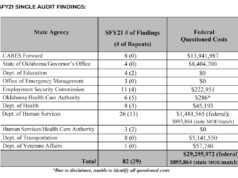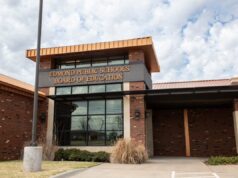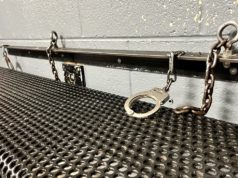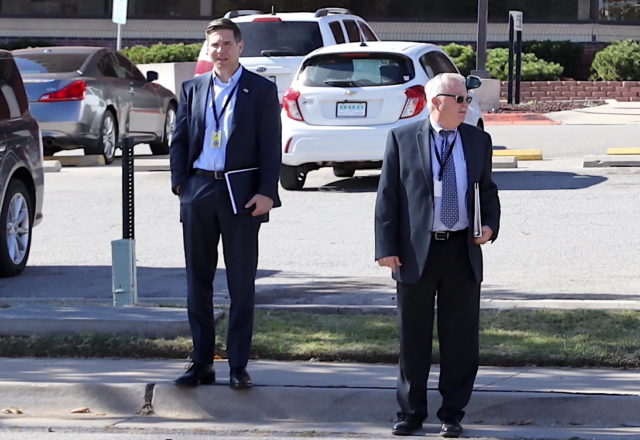

A voicemail recording obtained by NonDoc features Oklahoma County Jail chief administrator Greg Williams and director of communications Mark Opgrande calling the COVID-19 pandemic “the greatest thing that has ever happened to us” and “a built-in excuse” to keep media and other visitors out of the troubled jail.
“I mean, COVID has been wonderful for us,” Williams says in the voicemail, noting that the jail received $10 million in CARES Act funding for projects completed last year.
Opgrande says the financial benefit could get even better for the jail.
“And maybe give us another $150 million,” Opgrande says. “I mean, that would be the best thing that would happen out of this.”
The conversation features both men further praising the pandemic, downplaying the risk of detainee deaths and joking about the idea of saying these things to the public trust that employs them to oversee operations of the long-maligned Oklahoma County Jail.
Williams, Opgrande discuss interview request
NonDoc obtained the voicemail from a third party who asked not to be named. In early December, Williams had returned a phone call and left a message regarding an individual who had been detained in the Oklahoma County Jail. After completing his message, Williams apparently believed he had hung up his phone. But Williams had not, and the voicemail captured more than four minutes of his subsequent conversation with Opgrande.
Embedded above, the audio clip was trimmed by NonDoc to remove about 20 seconds of Williams’ message regarding the jail detainee.
To begin their unintentionally recorded conversation, Williams and Opgrande discuss a request from a French journalist who had recently contacted Williams about interviewing women inside the jail for a documentary. The two discuss denying the request.
“Just because of all the stuff that is going on, it probably wouldn’t be a good idea at all,” Opgrande says.
Williams agrees.
“I don’t know what good could come from it,” Williams says. “I mean, I’d like to help him. And if we had something real positive going on, or if we had something great going on, I’d think great. But just to show him that we’ve got nothing going on?”
Opgrande shared that assessment.
“Yeah, we’ve got nothing going on,” Opgrande said. “You can talk to a few ladies who are sitting around going, ‘Yeah, we don’t do anything.'”
Williams and Opgrande discuss suggesting that the journalist contact the operators of the Canadian County or Cleveland County jails — “They have nice facilities” — and consider putting the journalist in contact with the Tulsa County Jail public information officer. Eventually, Williams and Opgrande conclude that they cannot offer the journalist a tour of their jail because of the ongoing coronavirus pandemic.
“I mean, we could probably give him numbers,” Opgrande said. “But we have 354 women in here. We could not — if you want to stand outside and shoot video like everyone else that’s fine, but we’re not going to take you on a tour right now. COVID. We’ve got COVID going on. We can’t take you on a tour.”
According to the Oklahoma County Criminal Justice Advisory Council dashboard, which measures certain jail population metrics, the jail’s female population in January was about 258 inmates.
Williams: ‘COVID is our friend’
Following Opgrande’s remark that he could not take the French journalist on a tour of the jail, Williams begins discussing how positive the COVID-19 pandemic has been from his perspective. The two men discuss the amount of money the jail has received so far from CARES Act funds, and how much the county is due to receive from American Rescue Plan Act funds that may be used to construct a new county jail in the years to come.
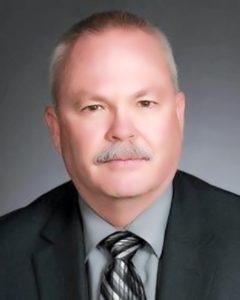
“COVID has been the greatest thing that ever happened to us,” Williams said.
Opgrande agrees.
“Yeah. It’s a built-in excuse to keep people out,” Opgrande responds.
Williams then mentions the $10 million in CARES Act funding the jail received to upgrade its HVAC system and other plumbing infrastructure. Those projects were completed last year.
“And it’s given us $10 million,” Williams says. “I mean, COVID has been wonderful for us.”
Opgrande then mentions even more money that might be coming from ARPA funds.
“And maybe give us another $150 million,” Opgrande said. “I mean, that would be the best thing that would happen out of this.”
Williams agrees.
“I know it,” Williams says. “COVID is our friend.”
Opgrande notes the grim nature of their assessment.
“Hate to say it,” Opgrande states.
The two men then repeat the phrase “COVID is our friend” back and forth while chuckling at the sarcastic suggestion that Williams include it in the “Monday report” he makes to the Oklahoma County Criminal Justice Authority, the “jail trust” that employs Williams and is legally responsible for the jail’s operation.
‘We’ve gotten so much money out of there, and we’ve only had 3 people die’
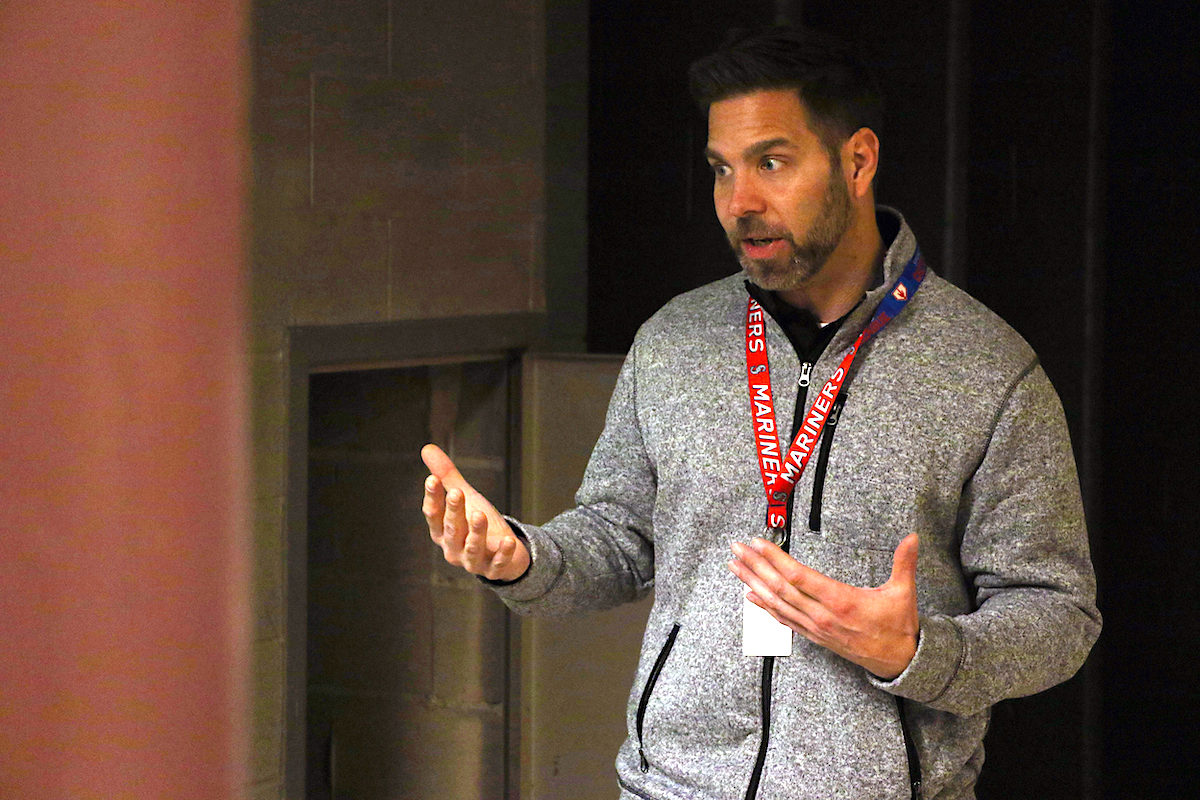
Opgrande and Williams begin to discuss the federal funding windfall in comparison to how many people have died at the jail from COVID-related causes. Both men try to estimate the total before questioning the way COVID-19 deaths are classified.
“We’ve gotten so much money out of there, and we’ve only had three people die,” Opgrande said. “Probably three. Isn’t it about three or four?”
Williams responds by saying he doesn’t know.
“Well, we’ve had three people that died who have tested positive, I’m sure that it’s not,” Opgrande said. “But it’s like the underlying cause. Everybody that dies from COVID pretty much dies from something else, but COVID isn’t helping.”
Williams says “it is a contributing factor.”
Opgrande then mentions situations in other states where he said some deaths were classified as COVID deaths despite featuring other factors.
“I remember during the beginning of the pandemic, there were stories where they had found out, that there were, I think it was California, there was a lady that got into a car wreck and she died, and since she tested positive for COVID after they took her to the hospital, they said she died of COVID,” Opgrande said. “Her family was like, ‘No, she died in a car accident. It said blunt force trauma. She just happened to have COVID. And it said ‘COVID’ on her [Medical Examiner] death report. Died of COVID.”
At least two detainees have died after testing positive for COVID-19 since the pandemic began. Leo Destea, 61, died Sept 14. Destea, who was in jail because of alleged probation violations, tested positive for COVID-19 Aug. 10 and was quarantined in the jail’s medical unit. He was hospitalized Aug. 30 after he began having trouble breathing, according to a report by Nolan Clay of The Oklahoman.
Paul Sanders, 62, died Aug. 27. He was hospitalized four days after testing positive COVID-19. Sanders, who was in jail on complaints of lewd acts with a child, also suffered from seizures and other medical problems. In January 2021, his attorney requested he be released on his own recognizance because of his heightened risk of serious medical problems should he contract COVID-19.
According to the Oklahoma Department of Corrections COVID-19 dashboard, 65 incarcerated individuals have died in state prisons since the pandemic began.
‘That’s not what we do’
The conversation begins to wind down with the two men returning to the initial request to interview women inside the jail, which they say they intend to deny.
“But yeah, I would say just say, ‘Look, man, we’re not in a position to talk to you.’ You know. That’s not what we do. We’re a holding facility and we’re not —” Opgrande says before Williams cuts him off.
Williams said most women in the jail don’t spend much time there. The average days in detention among the current jail population is 120.1 days, according to the CJAC dashboard. The average length of detention is not broken down by gender.
“That’s what I told him,” Williams says. “That’s what I told him. Everybody here is waiting to go to court. I mean, you’re wanting to do the life and the times of, you know, women in prison and jail. It’s like, they’re here waiting for court. I mean, a third of our people never even spend the night.”
The conversation ends with the two men discussing other alternatives for the French journalist. Opgrande suggests he speak with someone from TEEM, an Oklahoma City organization that works to reduce incarceration and recidivism.
“He’d be better talking to TEEM, or if that’s who he’s talking to, Kris Steele?” Opgrande said. “He probably has people he could talk to over there. They’ll probably have people he could talk to over there. They’ll probably get people for him. They could talk about what they do waiting and time in jail. But, yeah, I don’t think anything good could come out of it from our end, even though it is France. Nowadays with the internet.”
Williams agrees that, even if the interviews were broadcast in a foreign country, they could become problematic.
“It doesn’t make a difference if it’s in France or Edmond, it’s the same difference on the internet,” Williams said.
The audio recording cuts off, apparently hitting a five-minute cap on voicemail capacity as Opgrande notes that the French journalist’s work might make “a worthwhile documentary.”
“Nothing to see here,” is Williams’ final statement in the recording.
Williams: ‘I apologize for any offense or discomfort our words caused’
NonDoc provided Williams and Opgrande a transcription of the audio recording Tuesday morning. Opgrande released a statement from Williams shortly before the publication of this article saying he regretted “the insensitive nature of our comments.” His statement appears here in full:
We regularly host media inside the jail and requests are always evaluated with safety, availability of staff and appropriateness of the request in mind. In this situation, a French reporter was working on a documentary about women in prisons; since we’re a jail we were trying to identify a facility that was a better fit for the story.
Additionally, COVID-19 has presented safety concerns throughout the pandemic, requiring us to limit access to visitors. I regret the insensitive nature of our comments recorded in an unguarded moment and recognize the hurt and pain this pandemic has caused. I apologize for any offense or discomfort our words caused.
As evidenced by our recent report on cases in the jail, we take COVID-19 mitigation matters seriously and will continue to do so. Federal funding in response to COVID has provided the jail much-needed resources to improve conditions for our detainees and employees. We have utilized those funds and implemented COVID-19 protocols effectively – as of Monday we only had one active COVID-19 case among detainees and one among employees. We will continue to prioritize the safety of people in our care.
NonDoc also alerted multiple members of the nine-member jail trust that the recording exists and provided a summary of the conversation.
Opgrande provided a statement from jail trust Chairman Jim Couch.
“We are disappointed in these comments, but we know how hard this team has worked to improve conditions at the jail for detainees, staff and vendors,” Couch said. “Funding in response to COVID has been beneficial in addressing new challenges from the pandemic and improving long-standing infrastructure issues. The jail trust prioritizes the safety and wellbeing of those in the jail’s custody and we are pleased that the spread of COVID has been limited. We remain committed to transparency and openness.”
Former Sen. Ben Brown, who has served on the appointed body since its May 2019 inception, emphasized that he had not heard the recording, but he said the use of federal coronavirus relief funding has allowed for substantial improvements inside the Oklahoma County Jail.
“To my knowledge, there is absolutely nothing untoward or under the table being done with any of the money that comes to the jail. I think it’s all above board and has been a lot of work,” Brown said. “I think that we’ve done a good job of shepherding the jail and the money and getting through the pandemic. I believe it’s been above board and positive. I would be absolutely shocked, for example, if a grand jury or a reporter finds out that there is anything underhanded or ill-conceived. I just would be absolutely shocked.”
The Oklahoma County Jail’s pandemic funding
The Oklahoma County Jail has received significant CARES Act funds since the program was created by the federal government to assist city and state governments with pandemic-related expenses.
The jail received $10.3 million of CARES Act funds in 2021 to repair its HVAC system and plumbing. In 2020, the Oklahoma County Budget Board voted to send more than $40 million to the jail in a controversial meeting that led to months of criticism from some members of the public.
The Oklahoma County Criminal Justice Authority, which took over operation of the jail from the sheriff’s office in July 2019, voted to return much of that money to the county after it said it no longer needed the funds.
But federal money may also play a significant role in funding a proposed new Oklahoma County Jail, expected to cost $297 million. Those who support the new jail’s construction have made $150 million in American Rescue Plan Act funds the centerpiece of the effort, though questions remain if that money can be used to construct jails or prisons under federal guidelines.
Oklahoma County voters are also expected to be asked to approve $110 million in general obligation bonds to help fund the project.
Follow @NonDocMedia on:
Prison visit inspired Williams’ career choice
Williams, who was hired by the jail trust in November 2019, is a veteran of jail and prison settings. He worked for the Oklahoma Department of Corrections for 36 years. A graduate of Southwestern Oklahoma State University, Williams said in an interview with The Oklahoman that he originally planned to major in biochemistry, but found his calling upon visiting a prison.
“It’s hard to explain. … I just loved working with the inmates and the mechanics of the prison,” he told The Oklahoman in 2019. “I thought, ‘This is really what I need to do.’ So I went back and changed my major to psychology. It was late in my college career, so my professors were about to croak. But I had to.”
Opgrande is a former reporter and anchor for KOCO in Oklahoma City. He has worked for Oklahoma County since 2019 and became the jail’s chief media contact in 2021.










